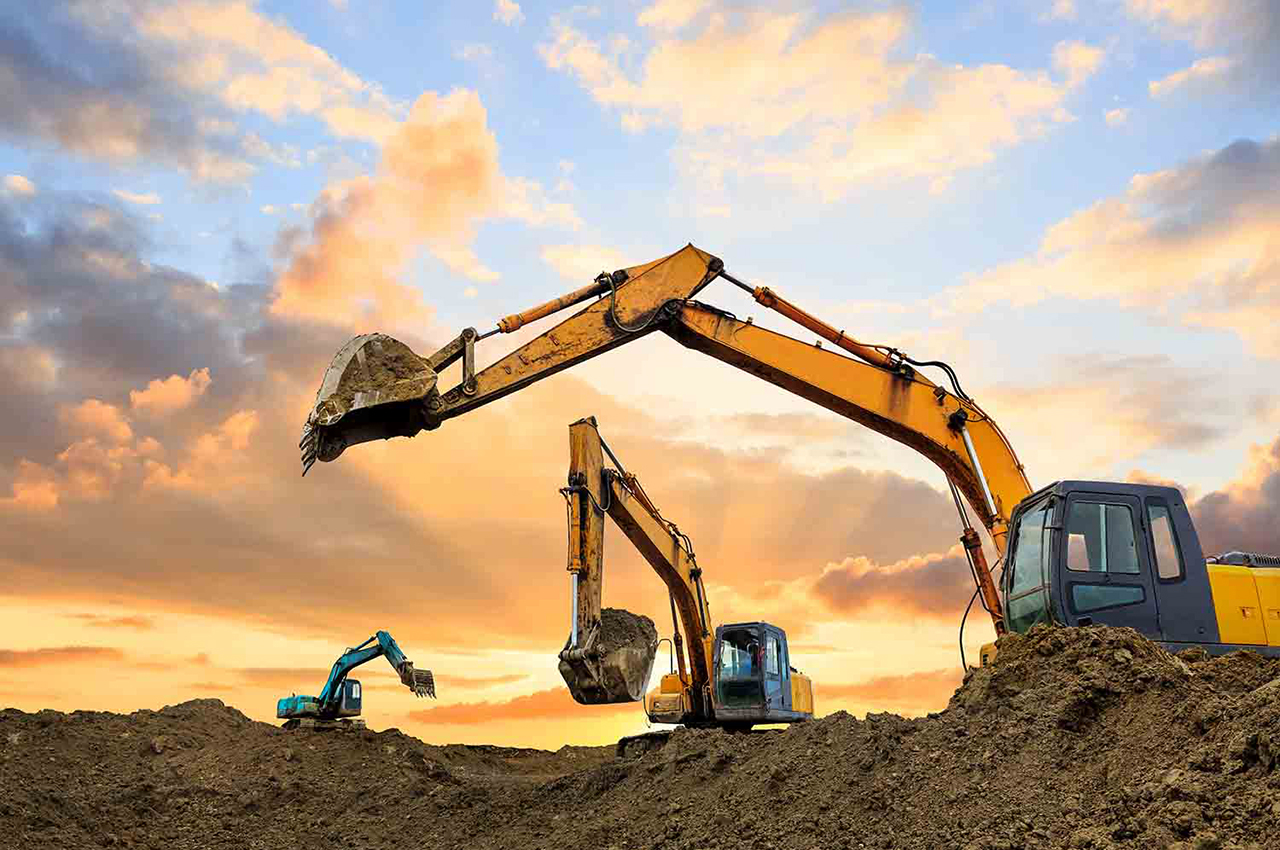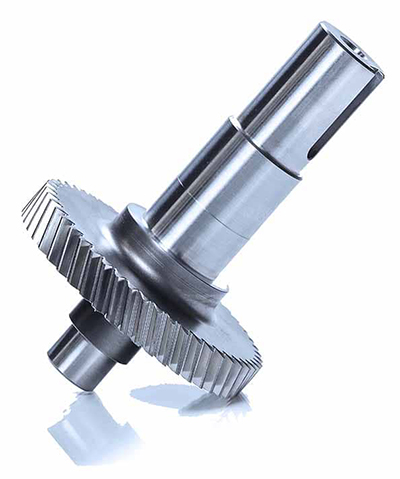

Stefaan Dewaele, CEO, IGW
With 70 years of experience in gear manufacturing, Belgium’s IGW history began in 1949 when a 20-year-old ambitious entrepreneur, Mr. Alfons Watteeuw, founded his one-man business in gear technology that is now known today as IGW.
IGW is steadfastly dedicated to making gears coupled with its unparalleled execution in manufacturing with international standards, best machines, and constant commitment to innovation and excellence, and skills of passionate people.
CEO Stefaan Dewaele spoke to Gear Technology India about IGW, the unique challenges and opportunities in the Indian market, and what lies ahead for IGW among others.
 Global customers rely on IGW for a wide variety of products in the drive lines of their critical parts. IGW supplies various parts such as gears, assembly & sub-assembly and prismatic parts to global customers. IGW caters to several markets such as automotive, compressor, agriculture, construction, rail, industrial machinery, medical and semiconductor, and so on. Global customers rely on IGW for their toughest projects, design insight, innovative solutions, manufacturing and technical expertise.
Global customers rely on IGW for a wide variety of products in the drive lines of their critical parts. IGW supplies various parts such as gears, assembly & sub-assembly and prismatic parts to global customers. IGW caters to several markets such as automotive, compressor, agriculture, construction, rail, industrial machinery, medical and semiconductor, and so on. Global customers rely on IGW for their toughest projects, design insight, innovative solutions, manufacturing and technical expertise.
Yes. IGW takes pride in offering custom gear design and manufacturing services to cater to specific applications.
We have a world class engineering team who possess a deep understanding of gear technology and its applications across various industries.
We have exceptionally trained CAD (Computer-Aided Design), CAM (Computer-Aided Manufacturing), KISS software trained engineers.
We work closely with our clients to gather detailed insights into their specific requirements taking into account factors like load, speed, torque, and environmental conditions among many other things such as metallurgy etc.
IGW has state-of-the-art manufacturing facilities in Belgium, Romania, India (Pune) & China.
In our manufacturing process, we utilize a range of advanced technologies and equipment to ensure precision, quality, and efficiency.
We have tremendous customer intimacy and therefore we have always created future-ready infrastructure with machines from international brands in entire processes like gear cutting, shaping, hobbing machine, gear shapers, gear skiving machines, gear grinding machines, profile grinding machines, and in-house heat treatment facilities (Ipsen & Aichelin SQFs).
We believe in quality check / assurance throughout the manufacturing processes deploying high precision measuring instruments with the latest technology.
We have invested in not only high-class quality testing equipment but trained our people as well to the fullest extent.
Together with the best testing machines and continuous training of people has ensured that we deliver high quality output.
Material for gear making is selected based on several quality criteria keeping end application in mind by the customers.
Usually, material is a choice made by the OEM and we adhere to the same requirement with our state-of-the-art testing facilities.
What separates IGW from the rest of the gear manufacturing is that it strongly believes in developing employees and their skills.
It continuously focuses on problem solving, improvement techniques, using digital tools, customer focus, leadership, lean management, 5S, teamwork, communication, knowledge sharing among group companies adopting best practices. We are present in each continent with manufacturing plants. Wherever the customer wants us to deliver gears, we do that from the plant close to the customer.
Noise reduction is important. To achieve robust gears that are more resistant to wear and no micropitting under high loads, gear honing, fine grinding comes into play. Gear honing ensures quieter gear shifting. Gear honing is also relevant when noise optimization is very important as it is in case of the construction of electric & hybrid engines.
With the growth of electric and hybrid technology, this is becoming necessary. Fine grinding with special stones also helps in reduction of noise. Especially in automotive, if the torque is too low, rattle noise emerges, and if the torque is too high, that will result in gear whine noise. Idler gears are placed between a driving and a driven gear to transfer motion without change of direction or gear ratio. This also helps to reduce noise and vibrations. For heat treatment, there are stringent quality criteria to ensure there is no distortion.
Over the years we have seen that Indian gear manufacturing is a significant and dynamic sector within the broader manufacturing industry. It plays a crucial role in various sectors automotive, off-highway, industrial needs and also catering to export. At the same time, the industry faces some of the challenges.
a) Technical Upgradation: One of the challenges in the gear manufacturing market, like in many manufacturing sectors, is the constant need to upgrade and adopt new technologies. Staying up-to-date with advancements in gear design, production techniques, and materials can be a challenge.
b) Skilled Labor: The industry often faces a shortage of skilled labor particularly when it comes to specialized tasks like precision gear machining and quality control. This can impact both production efficiency and product quality.
c) Quality Assurance: Maintaining consistent quality is vital in gear manufacturing due to the critical role’s gears play in various applications. Ensuring dimensional accuracy, surface finish, and proper tooth profile is a challenge that manufacturers need to address
d) Global Competition: The Indian gear manufacturing market faces competition from both domestic and international players. In the globalized economy, companies remain competitive 360 degree -cost, quality & reliability, innovation following safe practices. Technology and robust industrial infrastructure is the backbone of developed countries, and India too has been improved in the context and on the right path.
e) Cost: Conventional gear requirement is facing cost challenges being conventional manufacturing routes and requirements of customers. Price is the major criteria in such businesses.
a) Growing Industrial Sectors: With the growth of industries such as automotive, off-highway and overall, the demand for high-quality gears is increasing. This presents an opportunity for gear manufacturers to expand their customer base and diversify their offerings. India’s infrastructure development efforts, such as road construction, metro rail projects, and wind energy installations, have increased the demand for gears as well. India’s aerospace and defense sectors have also driven demand for high-precision gears used in aircraft, helicopters, and defence equipment.
b) Technology Adoption: The adoption of advanced manufacturing technologies like CNC machining, 3D printing, and digital simulation tools can enhance the precision and efficiency of gear manufacturing processes.
c) Local Sourcing: Many industries are looking for local suppliers to ensure supply chain stability. This can be an advantage for Indian gear manufacturers who can provide high-quality products and reliable delivery schedules. IGW India is established very well and brought in global IGW technologies – global player at your doorstep.
d) R&D and Innovation: Investing in research and development can lead to innovative gear designs, improved materials, and more efficient production methods. This can give manufacturers a competitive edge.
e) Collaboration: Collaborations among players can build good, innovative solutions and products and better use of skills and competence.

Sustainability is no longer a buzzword. OEMs and all global players want to have products which are sustainable. The entire manufacturing process needs to be sustainable keeping the environment in mind. We see this shaping up a lot in gear manufacturing as well. We create internal targets to achieve sustainability. Apart from global competitiveness, automation, digitalization is now an integral part of the manufacturing landscape.

IGW entered the Indian market in 2015 by acquiring a controlling stake in a Pune-based gear manufacturing company and completed the 100% acquisition in 2020. Now, the business is established very well on the foundation of “One Team One Goal” focusing on safety, quality, delivery, cost, agility and continually investing in state-of-the-art technologies come up with “speed of new product development” as one of the key strengths.
Typically, companies with 200 crores of revenue are our interest, and we are open to look at good and niche companies below this threshold, too.
We will continue to keep building business through more strategic opportunities in the Indian market. I think globally consolidation has happened, and the Indian market will not be an exception.